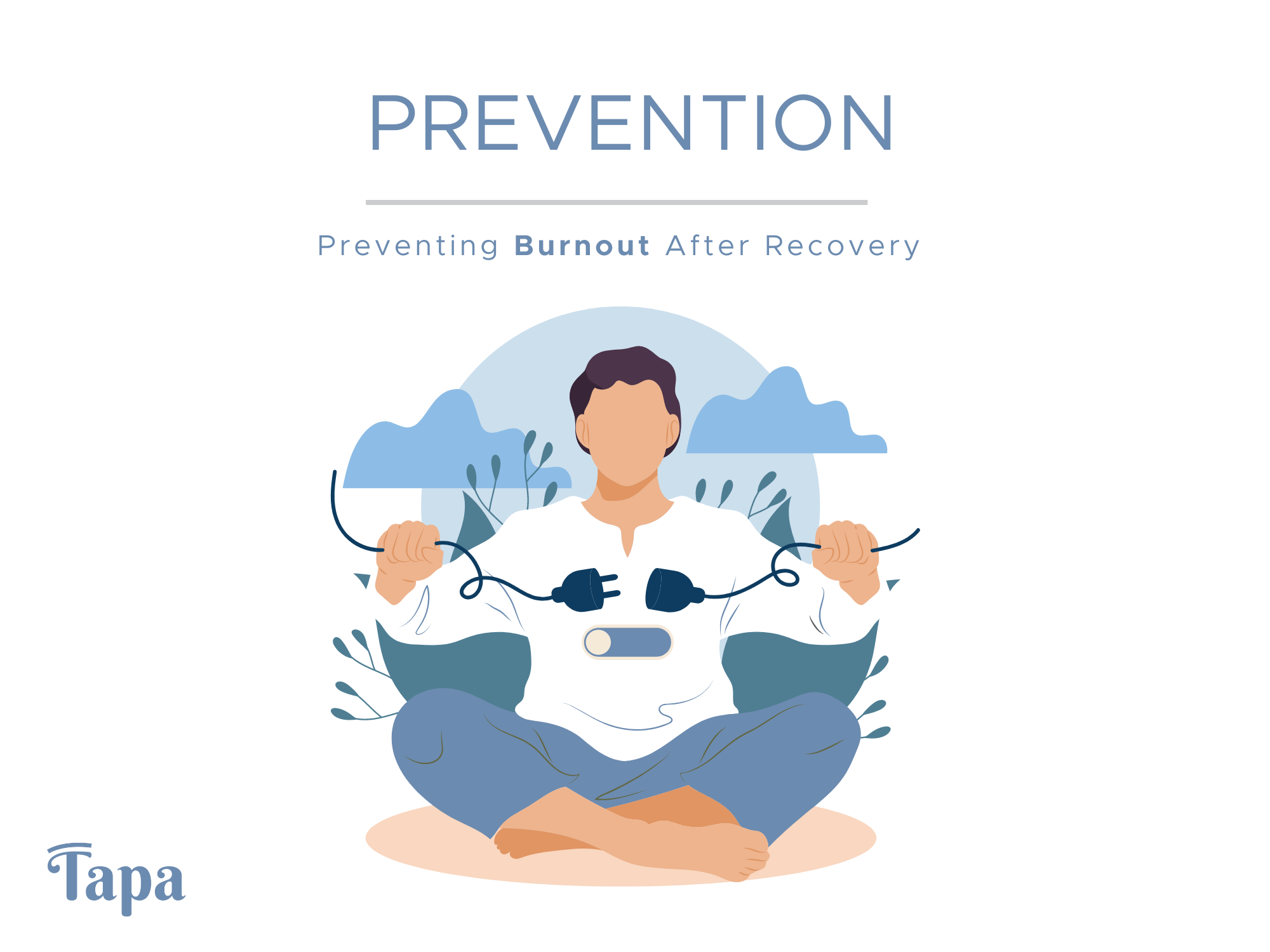Recovering from burnout is a significant achievement, but it’s only the beginning of your journey towards sustained well-being. Preventing a relapse into burnout requires ongoing effort and attention. Here’s a compassionate and practical guide to help you maintain your balance and protect your newfound energy.
1. Recognise and Respond to Signs of Stress
Understanding and acknowledging the early signs of stress is crucial in preventing burnout. Stress manifests differently for everyone, but common indicators include:
- A nervous or upset stomach
- Cold or clammy hands
- Headaches
- Clenched teeth
- Tense muscles
The quicker you can recognise these signals, the sooner you can take action. Regularly practising stress-relieving strategies, such as mindful breathing or taking a walk, can prevent acute stress from becoming chronic.

2. Set Boundaries
Boundaries are essential in maintaining a healthy work-life balance. They help you manage your time and energy effectively, ensuring you don’t overextend yourself. Establishing clear and firm boundaries can prevent an unmanageable workload and help you avoid slipping back into burnout. Communicate your limits to colleagues, friends, and family, and don’t be afraid to say no when necessary.

3. Develop a Work-Life Balance
Achieving a healthy work-life balance means managing your professional and personal responsibilities without sacrificing one for the other. This balance can lead to increased productivity and job satisfaction, as people feel more motivated and energised when they have time for activities beyond work. Prioritise your personal time and ensure you allocate space for hobbies, relaxation, and social interactions.

4. Prioritise Self-Care
Self-care is not a luxury; it’s a necessity. The National Institute of Mental Health describes self-care as taking time to do things that improve physical and mental health. This can include:
– Eating a balanced diet
– Staying hydrated
– Getting enough sleep
– Engaging in activities that bring joy and relaxation, such as reading, listening to music, or spending time with loved ones
Prioritising self-care helps manage stress and enhances overall well-being.

5. Exercise the Body and Mind
Staying active is a powerful tool in managing stress and maintaining energy levels. Physical activity doesn’t have to mean intense workouts; even a short daily walk can be beneficial. Yoga, meditation, and mindfulness techniques can help lower blood pressure, reduce anxiety, and improve sleep quality. Incorporating these practices into your routine can enhance your mental and physical health.

6. Regularly Take Breaks
Regular breaks are vital for preventing burnout. Short breaks throughout your day can help you relax and recharge. Use these moments to stretch, take deep breaths, or enjoy a quick walk. Additionally, taking longer breaks, such as holidays or personal leave, allows you to return to your responsibilities with a fresh perspective and renewed energy.

7. Maintain a Support Network
A strong support network is invaluable in maintaining well-being. Having family members, friends, or colleagues to share your feelings and experiences with can provide understanding and encouragement during challenging times. Don’t hesitate to seek support when you need it. Sharing your journey with others can alleviate feelings of isolation and provide practical advice and emotional comfort.
Conclusion
Preventing burnout after recovery is an ongoing process that requires mindful attention to your needs and boundaries. By recognising the signs of stress, setting clear boundaries, achieving a work-life balance, prioritising self-care, staying active, taking regular breaks, and maintaining a support network, you can protect yourself from burnout and enjoy a balanced, fulfilling life. Remember, it’s okay to take it one step at a time. Your well-being is a continuous journey, and every small effort counts towards a healthier, happier you.

